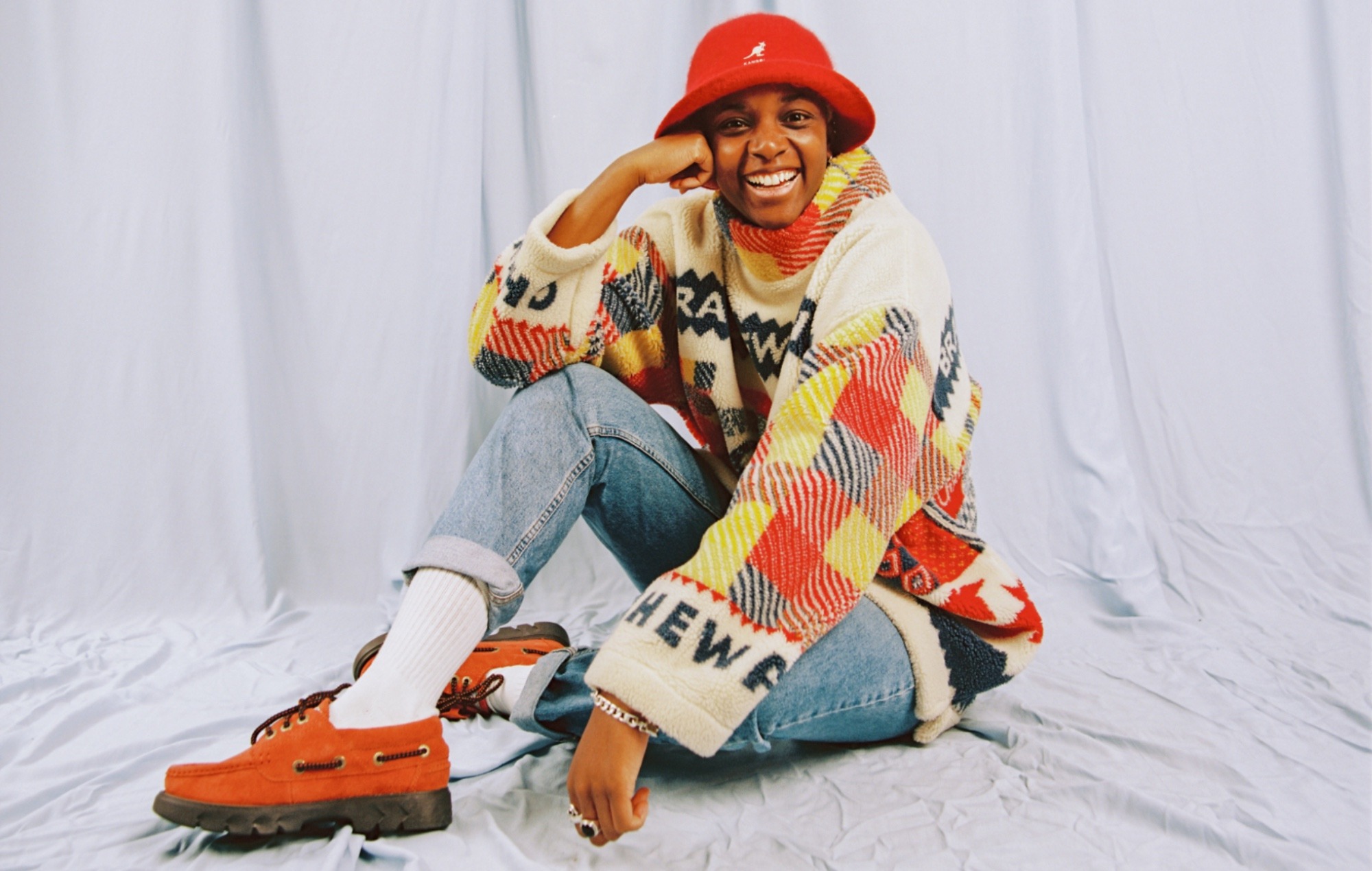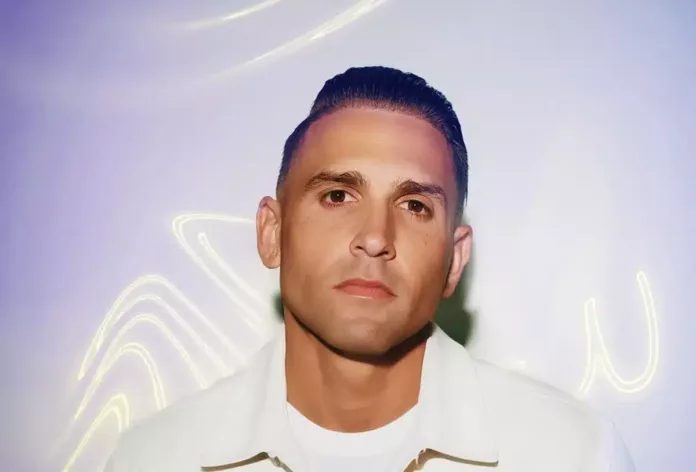
SHERELLE: “The government has failed the music scene in a massive way”
For Sherelle Thomas, things moved fast. A viral Boiler Room set, enlivened by a high-energy, 160bpm mix of footwork, jungle, and drum’n’bass catapulted her to fame in the club scene, following stints at south London’s beloved Reprezent Radio and a day job at Mixmag magazine. As she became an in-demand name on the circuit, the Coronavirus spread quicker; clubs shuttered, and Sherelle’s breakout moment was put on hold.
As a result of lockdown, Sherelle’s gigging calendar went from packed to empty just as quickly as she became an overnight sensation. With no income and her career choice branded “unviable” by the UK government (something she aired her views on in a BBC Newsnight interview last October), Sherelle started producing her own music during lockdown as “a way of dealing with all the anxiety and sadness that I had felt”.
The result is her debut EP ‘160 DOWN THE A406‘, an emotive and euphoric two-tracker that showcases a more sensitive side to Sherelle’s take on UK rave. Frustrated by the decades-long whitewashing of the music industry, she also recently launched Beautiful, a label and music education programme that provides a space for Black queer artists.
As Sherelle accelerates into a new phase of her career – one whose original material is as electrifying as her infamous sets – she reflects on the progression to recording artist, getting back out to performing live and the hopes for her new label.
How did it feel to have your career choice branded ‘unviable’ by the government?
“It was a massive kick in the teeth. DJing is not a stupid or easy job. I’ve spent many sleepless nights working out mixes. It takes a lot of perseverance because in UK schools, you’re not really taught that being creative is actually a good thing. It’s almost a job that’s not really real; they just force you into an office.
“It’s a sad thing, and there needs to be more respect for creative industries, because art is what people turn to – things that take you outside of your mind. And, with this government in particular, they don’t necessarily want people to be creative or to think outside the box. They want them in a little lane, so they can churn out information and they just listen. They make the division between culture and everyone else a very big thing.”
What do you think about the UK government’s lack of support for DJs?
“I think the government is shocking – they have failed the music scene in a massive way. It’s not just artists that get affected, it’s very much a drop-down system. With regards to our industry, the arts and the music scene, there should have been a lot more care taken; especially into insurance policies for festivals, so that the funding wasn’t just one or two arts funds that come through every blue moon”.
Going from having a calendar full of gigs to nothing at all must have been tough?
“It’s been rough. I was adamant that we’d be back out again after three months. I know that I went through shit during lockdown, trying to work out where money was going to be coming in and going out…”

Is that what led you to start producing?
“I’d always wanted to but didn’t know how; I thought you needed bare machinery. Then, last year, I asked my partner [the artist LCY] to show me a few bits. They explained it so that I could understand and feel like it’s actually possible. When I started getting into it, during the second lockdown, I realised I was churning out actual songs.”
How has making your own music helped you?
“It helped me manage my anxiety and to not think about what was going on outside. It also gave me a path of ‘for the whole day you need to create a tune’, and it was good coming up with that. I was really scared to get opinions from people, but then I did start sending songs out. I’d look up at LCY’s face and they’d ask why I’m not confident about it. It’s because I wasn’t used to it. But when we were doing the sit-down gigs, there were a few songs of mine that I put in front of people and their reaction gave me confidence – even though nobody had a clue that they were my songs.”
How did those songs turn into your debut EP?
“‘160’ had loads of versions and then ‘Rhythm Love (Feel It)’ is reflective of my mood being locked down. There’s a lot of sparse moments to the track itself, but then there’s a release, too – I wanted to reflect how I felt about actually releasing music and getting it out there. I want people to be happy after listening to the EP rather than feeling the emotional side too much. I wanted to show a lighter side to me, too, because everyone knows me for hard and fast music. I also wanted to make sure that, sonically, people were aware that I was going to try stuff that was new so that when I do put out more stuff people aren’t going to put me in a box.”

You’ve also found time to launch your own label and music education programme, Beautiful. Tell us about that…
“I just got fucking sick and tired of what was going on in the music scene. It got to a point where I was on Twitter and seeing all the arguments going back and forth about things and it just pissed me off. A lot of people were, and still are, very ignorant to the whitewashing and the LGBTQI+ erasure of the music scene. When I had to take a break off social media, it gave me the clearance to really think about my own place in the music scene: was I doing enough, and could I do more?
“I know I can’t literally cure racism, but there’s certain things I can do to counteract to make the scene better. I thought deeply about things, especially Black and POC ownership and how there isn’t much of that in music. So, as well as it being about educating people about where music comes from, Beautiful is about creating a community, protecting legacy and addressing factors like ownership and money.”
It sounds like you’ve got big ambitions for it, then?
“Oh my god, yeah! I definitely want to see the Beautiful name scrawled across a club somewhere in London. I want it to be as safe a space as possible, and build it out to having ownership of other or new clubs in Europe and eventually further afield. I can see that people like myself rarely own clubs because some Black and POC do not have generational wealth, where we can go: ‘Oh mum, can you lend us £5,000?’
“I know a lot of people want to be in positions where they are able to cultivate change, but I know it’s going to take time until we are in a position of influence to do that. Beautiful is going to grow and grow, and a girl’s gonna need all the help she can get, but I’m also happy for that because I’m connecting with people who want the best for the dance music community. I want there to be more Beautifuls: community-led legacy-led teams which address ownership. I hope there’s someone who’s thinking of doing something similar, because it means there are things that will change the scene and counteract all the shithousery.”
Do you think clubs will be able to bounce back easily after being shut for so long?
“I desperately want to reconnect back with the UK club scene, because for me it’s the rowdiest. We’ve just got a very unique energy. I’m trying to make sure that, when I do DJ, it’s at a lot of grassroots places because I’m concerned about them being able to make any money. Personally, I’ve decided to stick to London and UK-based gigs this year, rather than going abroad, too. As much as some people might not think we’re role models, I don’t want to go to another country if they’re still dealing with Covid – in a good or bad way, it doesn’t sit right with me. Also, me not going over might give some homegrown talent the chance to be a headliner or big support act.”
Sherelle’s new EP ‘160 DOWN THE A406’ is out now



